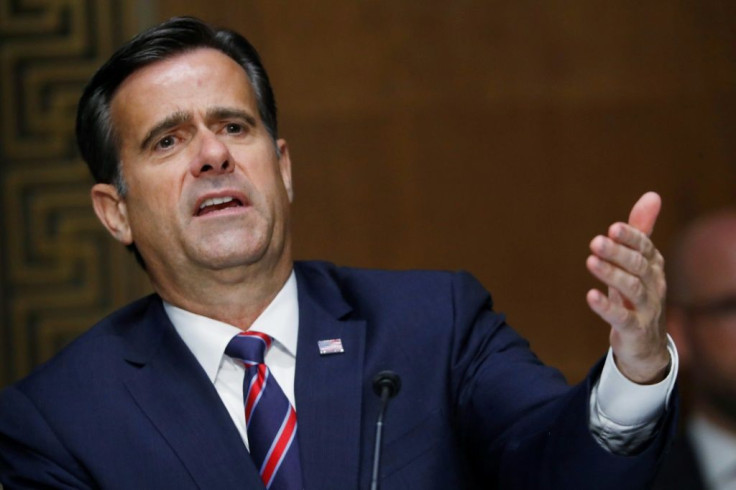Iran Implicated In 25,000 Threatening Emails Sent To Democratic Voters Claiming To Be From Proud Boys
KEY POINTS
- U.S. intelligence and Google say Iran was behind 25,000 threatening emails sent to Democratic voters
- The messages were purportedly from the Proud Boys, and told voters the group had access to election infrastructure, threatening to "come after them" if they did not vote for Donald Trump
- Iran denies the allegations
U.S. intelligence has attributed threatening emails sent to Democratic voters in multiple states to Iran, saying the messages were intended to smear President Donald Trump.
The emails were sent to voters in several states, including Florida, Arizona, Pennsylvania and Alaska.
The emails said they were from the Proud Boys, a violent right-wing hate group, and told voters to vote for Trump "or else." Google also blamed Iran, and said it was able to stop almost all the emails sent to its users with its internal span filters.
Yalls president supports these people?? pic.twitter.com/wS9t9J5Xff
— nickel (@Nicoleeem73) October 20, 2020
Some emails contained personal information like addresses, and told Democratic voters to “vote for Trump on Election Day or we will come after you.” The message boasted the senders had access to “the entire voting infrastructure” and would “know which candidate you voted for.” The emails were sent from a website a Proud Boys spokesman said was no longer in use.

U.S. Director of National Intelligence John Ratcliffe said Iran was responsible for the emails and implicated Russia. He said both Iran and Russia had obtained some U.S. voter registration information. Ratcliffe did not give details or supplementary evidence, but Google confirmed his characterization in a statement to CNN.
“We and others have seen evidence that an operation linked to Iran sent inauthentic emails to people in the U.S. over the past 24 hours,” it read.
Google said Gmail’s spam filters prevented 90% of the 25,000 emails sent to its users. It also said it had deleted a video file on Google Drive and a video on YouTube with less than 30 views connected to the effort, deleting the accounts that posted them.
Still, some Democrats were unconvinced. They pointed to a video on social media referenced by Ratcliffe alleging fake ballots would be sent from overseas, a common target for Donald Trump, as evidence that Ratcliffe was politically compromised.
TO CLARIFY: These election interference operations are clearly not meant to harm President Trump. Americans should listen to FBI Director Wray and CISA Director Krebs. Ratcliffe has TOO OFTEN politicized the Intelligence Community to carry water for the President. https://t.co/vZHI6Z35HU
— House Homeland Security Committee (@HomelandDems) October 22, 2020
Other officials took a more balanced perspective, saying the emails were meant to undermine faith in U.S. elections as a whole rather than target a specific candidate. FBI Director Christopher Wray said Russia and Iran can send messages but lack the capacity to directly interfere with election results.
“You should be confident that your vote counts," he said.
Both Iran and Russia denied the allegations. Alireza Miryousefi, spokesperson for Iran at the United Nations, said Iran had no interest in U.S. elections.
“Unlike the U.S., Iran does not interfere in other country’s elections,” he said. “The world has been witnessing U.S.'s own desperate public attempts to question the outcome of its own elections at the highest level. These accusations are nothing more than another scenario to undermine voter confidence in the security of the U.S. election and are absurd."
© Copyright IBTimes 2024. All rights reserved.





















